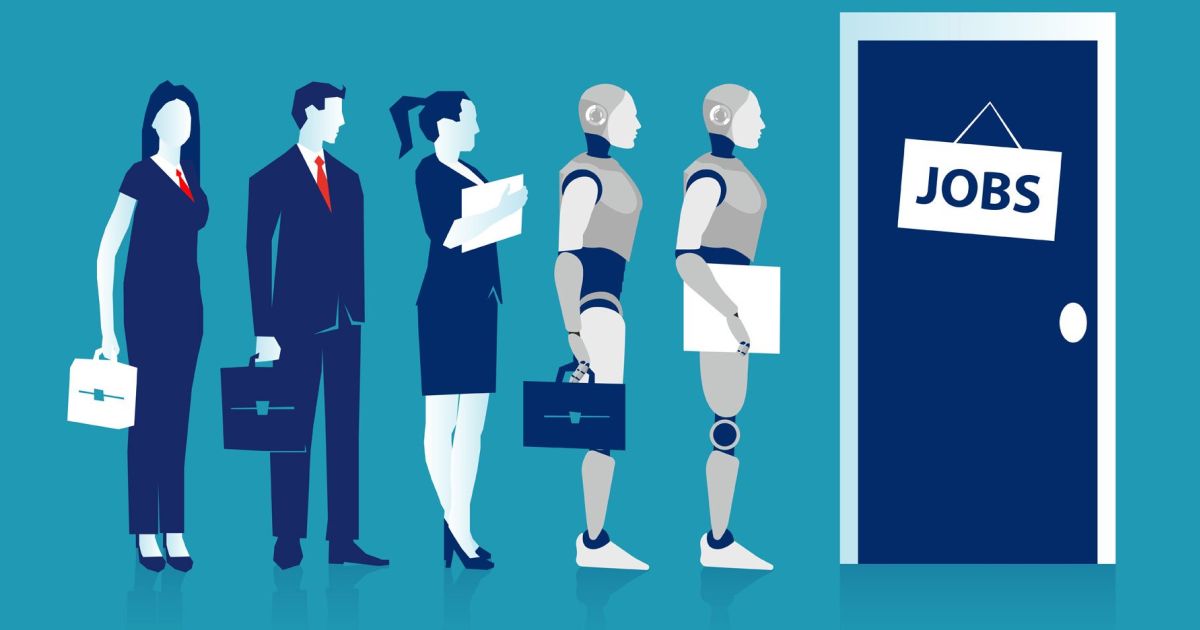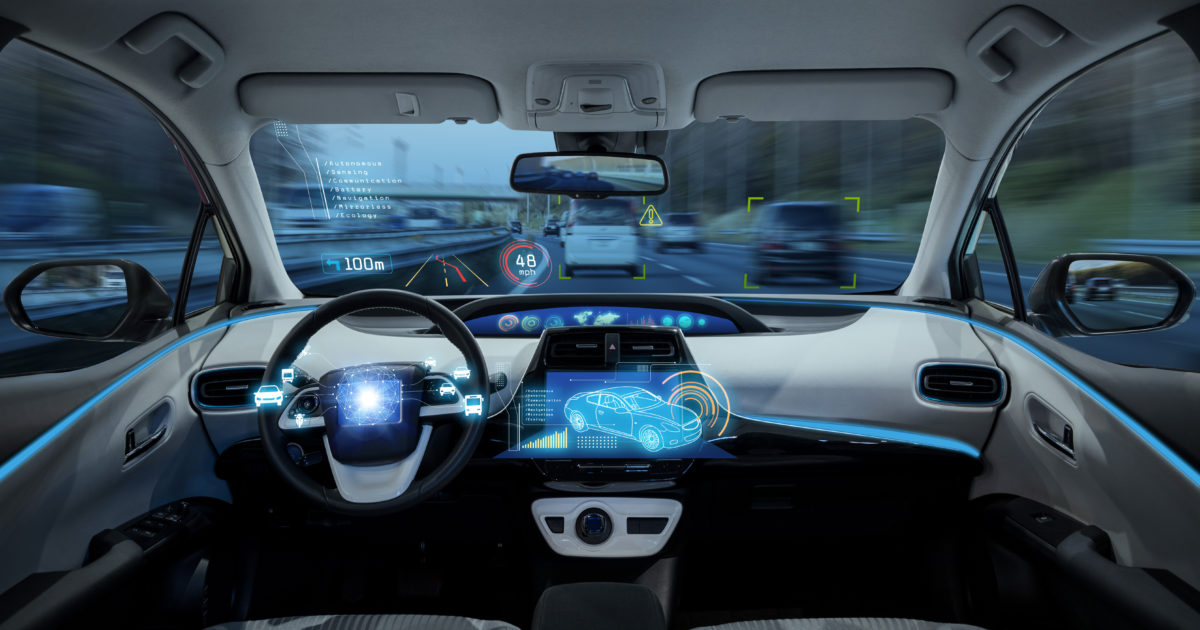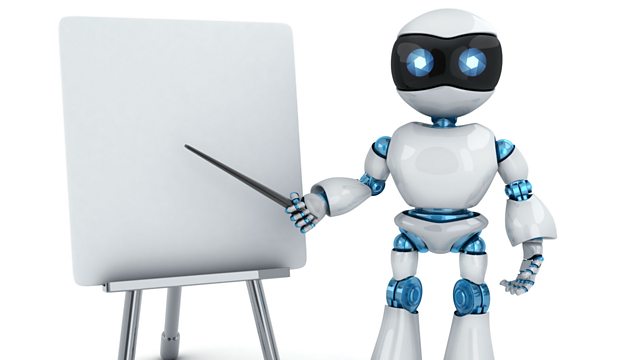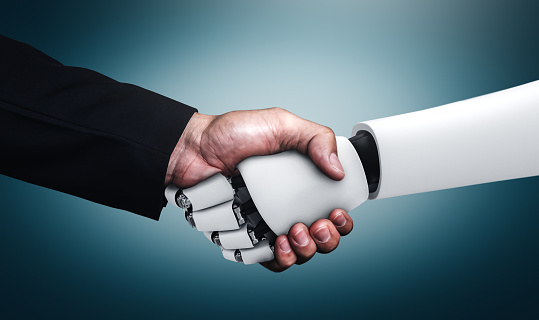With Artificial Intelligence (AI) becoming more and more prevalent in our lives, a variety of things are starting to change for the better. We can easily navigate from point A to point B with google maps while getting live traffic updates, it’s easier to make connections online and stay in contact through social media and we carry a digital assistant with us almost everywhere we go. However, besides all the positive developments, there also some concerns about what the future might bring. Is AI going to steal my job? Will my child’s teacher be an AI? Am I supposed to trust my car to drive me around instead of being in control myself? Will we end up talking more to robots than with human employees? Where does it stop?
While all these examples are certainly possible to some extent, I do not believe that this is our future. Sure, it looks like AI can do incredibly smart things nowadays that we can’t even dream of, but does that mean they can and should do everything? Raw intelligence, the ability to do complex math for example, has never necessarily been our strong point. AI can do an amazing job with complex equations, repetitive and extremely structured tasks or making decisions based on a steady stream of data. However, in other situations, it is lacking a bit. Computers do not have our intuition, are terrible at dealing with unpredictable or unexpected situations and are almost powerless without a steady stream of data to feed them. What computers lack is our human authentic intelligence – a form of intelligence that does not require a strict structure or data stream, but one that can be adaptive, intuitive and creative. There are also situations where a computer’s complete lack of authentic emotions is simply going to cut short. There are many situations where we need real human interaction, and an AI’s imitation is not going to be enough for us.
Instead of replacing us, AI can be used to complement our efforts and strengthen our weak points, all while making use of the AI’s strong points. This does not make us redundant, instead, it supports our decision making, allows us to focus on what we are good at and protect us from tasks that are harmful to us. Our weak point’s are an AI’s strong points – and the other way around. This article covers three main areas showing how AI can greatly benefit us without replacing human efforts.
Will AI steal my job?

Unlikely, though even if it does – it will do so only because you will most likely be better off not doing that specific job. Although cases where AI is likely to fully replace jobs are likely few, it is definitely worth discussing. While “AI replacing jobs” is often a possibility seen with fear and dismay, many forget to consider that in some cases, this is exactly the development that we need. For example, some jobs are plain dangerous for humans due to working with or around harmful chemicals, extreme temperatures or radiation. Hard labor jobs that include frequent lifting of heavy objects are also going to be harmful in the long run. For these jobs, robots are simply much better suited for the job, and using them instead will increase worker safety. That will indeed mean that these jobs may be replaced, but I doubt many see the improvement of working conditions as something to be avoided. After all, certain jobs being taken over by machinery is nothing new, for example the Industrial Revolution in the 18th century. It is simply a matter of machines taking care of one of our weak points.
Now, I want to clarify something that is often easily forgotten: AI is designed to be very good at specific tasks, while us humans almost always have to handle a variety of tasks as part of our job. As a direct consequence of this, AI is very unlikely to completely take over many jobs. Consider deep learning models trained to analyze an MRI scan and locate abnormalities. Does this mean that in the future, radiologists will be unnecessary? All their training, education, their expertise, is it for nothing? Of course not. Analyzing the scans is only of one their tasks, as others include communicating the results with experts and patients, interviewing patients, performing the scans themselves and many more. None of those tasks are better off being done by AI as most require authentic human interaction and as a result, AI cannot replace their job. What AI can do is to assist in specific tasks, such as analyzing the scans. Even here, the radiologist’s input is still important. While AI is very good at recognizing patterns and will practically never miss one, humans are much better at handling unpredictable or unexpected events. Combining both, the analysis of your MRI scan is in good hands. This is what the AI’s job in the workforce will be: to assist us on various tasks to complement our weaknesses. In addition, working alongside AI can free up valuable time for the human employee that they can focus on tasks they find more important.
Lastly, I want to cover a valid cause of concern for those jobs that will inevitably get replaced like I explained earlier. An easy counter-argument would be “well, those people can get a different job” but it may not be that easy when they were trained for their specific job. They may not be qualified for other jobs, end up with less pay, or they may not be able to find a job at all. While I still believe that this is a necessary step to improve worker safety and tackle jobs that are too dangerous to be reasonably performed by humans, I agree that we have to protect workers losing their job to machinery in this way. For example, workers should be notified far ahead of time if their job is going to be replaced in the future. Since robots don’t fall out of the sky, a company should be able to notify them of their plans at least a year in advance, giving them plenty of time to look for different jobs. If required, they should receive necessary training to allow them to find a similar paying job. It is important that we continue the discussion around this and ensure that certain regulations are put in place to protect those who do end up losing their job.
Is an AI going to drive me around?

This is an interesting question, and it is one that is hard to find a clear answer to in terms of to what extent it is truly possible, and when it will happen if so. Self-driving features are already present in some modern cars, including lane-centering, adaptive cruise control and automatic parking. These features can work quite well, though they still require the driver to be present and paying attention at all times. Fully self-driving cars, however, go much further. In theory, it would mean that you select a destination and the car will drive you there, allowing you to read a book or watch a movie. These cars don’t even include a steering wheel or other controls: everyone is a passenger. To some people this sounds like a dream, while for many people it is mostly a scary thought. One thing that is certain, is that these cars would have to be damn near perfect. Despite humans being far from perfect, we seem to have higher standards when it comes to robots and AI. It’s no wonder that, despite thousands of fatal of car crashes happening every day, there is much more focus on those few accidents caused by brand new self-driving cars. While we all know that humans make mistakes, we expect an AI that is supposed to be ‘better than us’ to be, well… better. Much better. And it certainly has the potential to be, since with enough self-driving cars, traffic would be much safer and smoother as almost 95% of car accidents are caused by drivers. Good self-driving cars could reduce the number of accidents substantially, which in turn reduces medical and insurance costs. It surely sounds like a worthwhile investment.
However, I personally don’t think it is worth the time, money and effort to try and develop these very near-perfect self-driving cars. At least, not yet, and not any time soon. We don’t need the cars to drive us, we just need them to help us enough to where we reduce the number of accidents and improve traffic flow. In other words, we need them to complement our weak points, not replace human drivers entirely. The existing examples I mentioned earlier are already doing a good job at that. The AI provides support and convenience, while the human driver is still present at all times to catch any possible mistakes by the AI and react to unexpected events that the AI may not be properly prepared for. Humans can also take care of basic driving tasks such as steering and navigating just fine, as long as the AI is there to catch the things we may miss when distracted. As a bonus, the driver remains responsible for accidents and the whole argument regarding “who is responsible when the AI causes an accident” is avoided entirely. Instead of putting all this money into a couple expensive fully autonomous cars, we should be making sure that all cars have at least the basic AI safety technology like emergency breaks, warning beeps and lane keeping in a way that remains affordable, to ensure as much safety as possible for everyone.
How can AI complement education?

Education is an area where AI has a lot of potential for many applications in the future. Contrary to the matter of jobs, most people look positively towards the advancements of AI in the field of education, though there is some hesitation as well regarding the idea that teacher would be replaced. Rest assured, this is not going to happen. The COVID-19 pandemic is a prime example of this, as even in these two years with periods of remote teaching, it is clear that many students prefer in-person classes. Even before the pandemic, good interaction with the teacher (and of course other students) has always been important in every area of education. However, like in many areas, teachers can and likely will greatly benefit from working with AI to complement their efforts. Teachers are often already overworked and have a variety of tasks – like preparing lessons and checking tests – that are expected to be completed in their free time. Certainly sounds like they could use some support from AI, and there are many ways in which AI can both improve their job and greatly benefit education in general.
First of, we can work on reducing their work load by looking at repetitive and structured tasks that could easily be automated. Grading tests or homework is the most prominent example of this, and to some extent it is already happening with multiple choice tests. Checking open questions is not possible to be automated yet, but in the future, Natural Language Processing techniques will be able to accurately read the responses to a question and check them. Of course, AI will also be able to take care of the administrative work of registering the grades. In total, quite a bit of time can be freed up by automating these tasks. In turn, this gives the teacher time to focus on what they think is important, which most likely is a lot more related to actual teaching, rather than administrative tasks.
In addition, while it is a lot of work for teachers to keep a detailed overview of each student’s results, their successes, and their struggles, an AI can do this quickly and easily based on all past results, as AI is great at working with these data. This way, a detailed kind of ‘student profile’ can be created, which can let the teacher know where a student needs help and even next steps to provide them that help. This is starting to tackle a key part of good education: personalized learning. It is simply not viable for teachers to put together a detailed and personalized learning plan for each individual, but in time, AI will be able to do this quickly and easily for each person. By ensuring that each student is following a learning plan specifically designed for them, no one is left behind because the predetermined format does not work for them.

I hope that, after reading this, you concerns about the possibility of being made redundant by AI have been put at ease a bit. AI has the amazing potential to fill the gaps where our own capabilities are lacking while at the same time allowing us to keep doing what we are good at. Advancements are certainly happening fast, and we need to stay aware of the developments and protect minorities who may inadvertently be negatively affected by them. But we also need to remain open, or perhaps begin to open up, to the many improvements that AI will bring to our lives. AI may be coming for your job, but it’s not there to steal it – it’s there to refine it.


